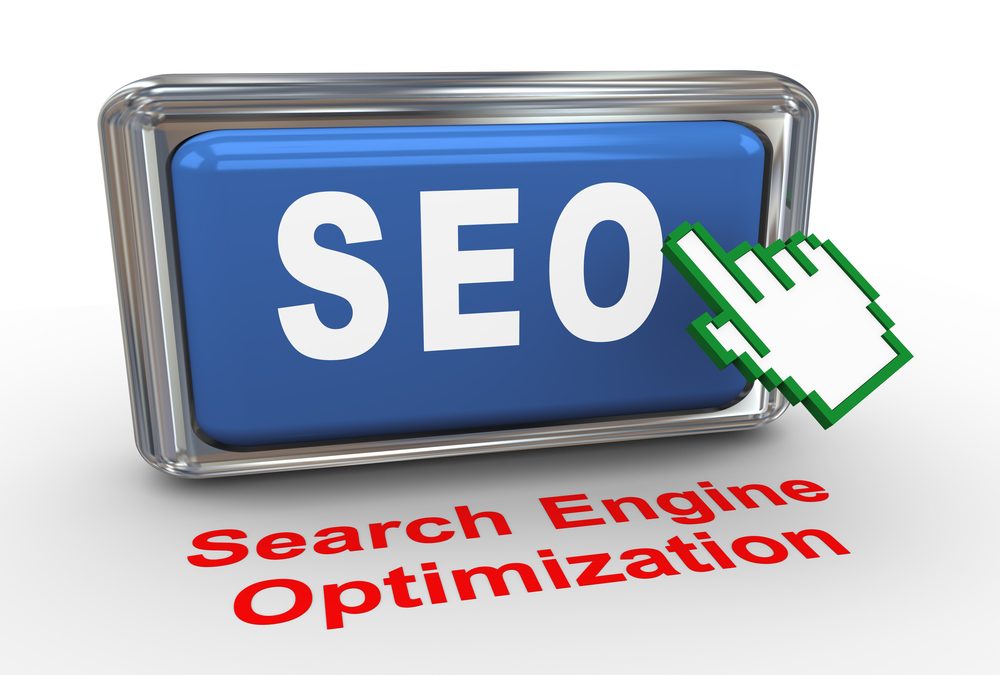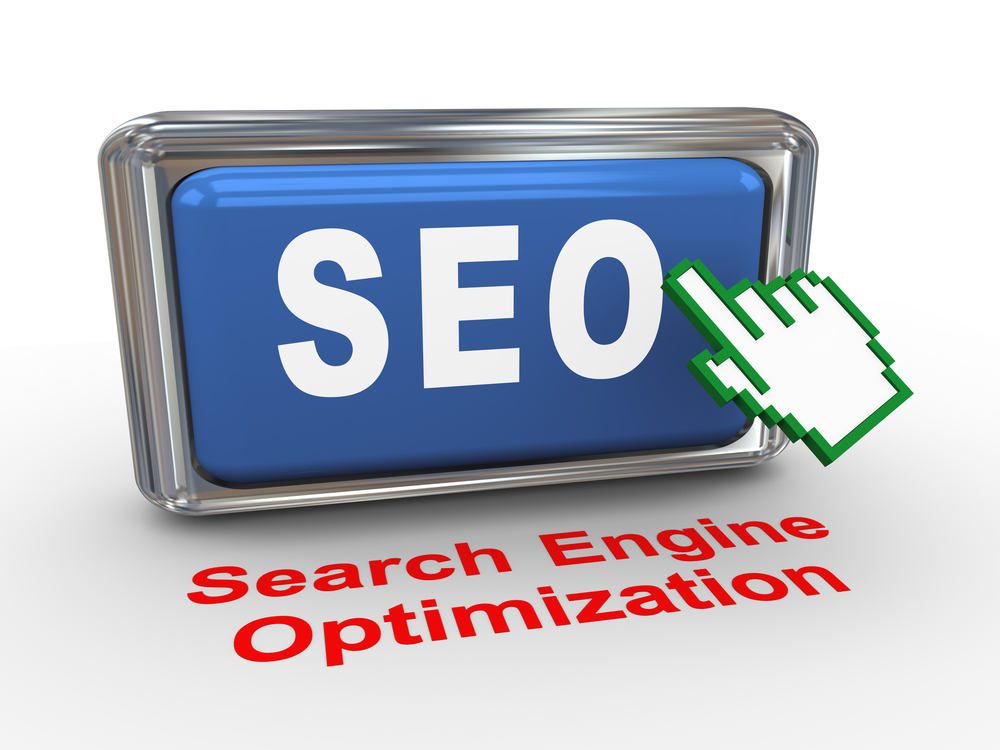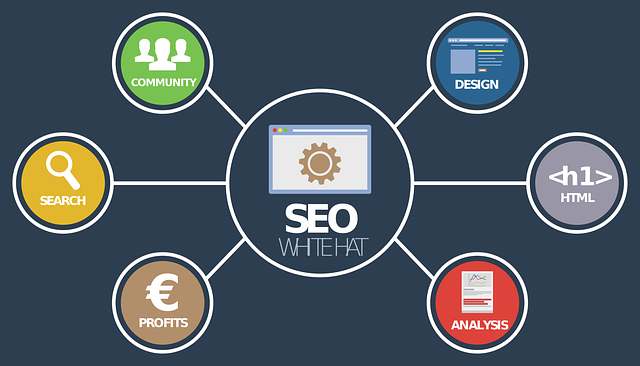
Jul 6, 2023 | SEO Tips
In today’s modern world, being present online is extremely important for businesses in all kinds of industries, including the moving industry. With more and more people using the internet to find and hire moving services, it’s crucial for moving companies to invest in search engine optimization (SEO). This helps their website get noticed, attract potential customers, and stay ahead of the competition. In this article, we’ll explore why website SEO is so important for moving companies. We’ll discuss key strategies and benefits that can help them thrive in the online world.

Just as your company moves boxes, your website keywords should be moving upward in Google search.
The Digital Transformation of the Moving Industry
The internet has completely changed the way people search for and choose moving services. The days of relying solely on phone books or recommendations from friends are long gone. Nowadays, potential customers rely on search engines like Google to find trustworthy moving companies in their local area. This digital shift highlights the importance of moving companies establishing a strong online presence and using effective SEO strategies.
Understanding the Importance of SEO for Moving Companies
- Increasing Website Visibility with Local SEO
Local SEO techniques play a pivotal role in helping moving companies rank higher in local search results. By optimizing their website and online listings for relevant local keywords, businesses can attract customers in their specific service areas. Implementing location-specific landing pages, claiming business listings on Google My Business, and acquiring positive customer reviews are all crucial aspects of local SEO for moving companies.
- Keyword Research and Optimization for Moving Companies
Thorough keyword research enables moving companies to identify popular search terms used by potential customers. By incorporating these keywords naturally into their website content, businesses can increase their visibility in search engine results pages (SERPs). Keyword optimization should be done strategically in headings, subheadings, meta tags, image alt tags, and throughout the website copy.
- Creating Engaging and Relevant Content
Developing informative and engaging content is essential for moving companies. By crafting articles, blog posts, and guides related to the moving process, businesses can establish themselves as experts and build trust with potential customers. It is vital to address common concerns, provide helpful tips, and share valuable insights through well-written content.
- Optimizing Website Structure and Navigation
A well-structured and user-friendly website is crucial for both search engines and visitors. Moving companies should focus on creating clear navigation menus, logical page hierarchies, and user-friendly URLs. Ensuring fast loading times, implementing mobile responsiveness, and optimizing meta tags and headings are additional elements that contribute to a well-optimized website.
- Building High-Quality Backlinks
Building high-quality backlinks is a key component of SEO for moving companies. By acquiring backlinks from reputable websites and directories, businesses can improve their website’s authority and credibility in the eyes of search engines. Collaborating with industry influencers, engaging in guest blogging, and actively participating in online communities are effective strategies for earning valuable backlinks.
- Leveraging Social Media for Increased Exposure
Social media platformssuch as Facebook, Twitter, and Instagram provide moving companies with an excellent opportunity to expand their online reach and engage with potential customers. By creating compelling social media profiles and sharing relevant content, businesses can increase brand visibility, drive website traffic, and generate leads. Additionally, social media platforms allow for direct interaction with customers, providing an avenue for addressing inquiries and building relationships.
- Monitoring and Analyzing SEO Performance
To ensure the effectiveness of SEO efforts, moving companies need to monitor and analyze their website’s performance regularly. This includes tracking keyword rankings, website traffic, bounce rates, and conversion rates. By utilizing tools like Google Analytics and Google Search Console, businesses can gain valuable insights into user behavior, identify areas for improvement, and make data-driven decisions to optimize their SEO strategy.
- Mobile Optimization for Moving Companies
With the majority of internet users accessing websites through mobile devices, it is essential for moving companies to optimize their websites for mobile viewing. Responsive web design, fast loading times, and intuitive mobile navigation are critical factors in providing a seamless user experience. Mobile optimization not only improves user satisfaction but also helps in achieving higher search engine rankings.
The Benefits of Investing in Website SEO
Implementing a robust SEO strategy can yield numerous benefits for moving companies:
- Increased Website Traffic: By ranking higher in search engine results, businesses can attract a larger volume of organic traffic to their website.
- Improved Conversion Rates: Optimized websites with relevant content and user-friendly interfaces are more likely to convert website visitors into customers.
- Enhanced Brand Visibility: A strong online presence through SEO establishes moving companies as trusted authorities in their field and helps them stand out from the competition.
- Cost-Effectiveness: Compared to traditional marketing methods, SEO provides a cost-effective means of attracting targeted leads and generating long-term results.
- Long-Term Growth: Consistent SEO efforts lead to sustainable growth, as businesses continue to reap the benefits of increased visibility and higher search rankings.
Conclusion
In an increasingly digital world, moving companies must recognize the significance of website SEO to thrive in the competitive online landscape. By implementing effective strategies such as local SEO, keyword optimization, content creation, and backlink building, businesses can improve their website visibility, attract potential customers, and ultimately grow their client base. Investing in website SEO not only provides short-term benefits but also lays the foundation for long-term success in the moving industry.
Are you searching for ways to enhance your website’s visibility in local search engine results?
Look no further than Jen Ruhman SEO! As a trusted San Diego-based SEO company specializing in local SEO, we have the expertise to boost your website’s ranking in search engine results pages (SERPs). This translates to increased website traffic, more leads, and higher conversions for your business.
Elevated rankings mean a flourishing customer base for your business! Allow our skilled team and proven techniques to deliver the results you desire.
Don’t wait! Contact us today to discover more about our exceptional local SEO services!
FAQs (Frequently Asked Questions)
1. How long does it take to see results from SEO for moving companies?
The timeline for seeing SEO results can vary depending on various factors, such as the competitiveness of the market, the quality of SEO efforts, and the age of the website. Generally, significant improvements in search rankings and organic traffic can be observed within 3 to 6 months of implementing a well-executed SEO strategy.
2. Can I do SEO for my moving company’s website on my own?
While it is possible to learn and implement basic SEO techniques for your moving company’s website, it is advisable to seek professional assistance for optimal results. SEO involves a complex set of strategies and requires constant monitoring and adaptation to algorithm updates. Hiring an experienced SEO professional or agency can save time, ensure effective implementation, and deliver better outcomes.
3. Is SEO a one-time effort, or does it require ongoing maintenance?
SEO is an ongoing process rather than a one-time effort. Search engines frequently update their algorithms, user behavior evolves, and competitors adapt their strategies. To maintain and improve search rankings, moving companies need to continuously monitor their website’s performance, make necessary adjustments, and stay up-to-date with industry trends.
4. How does SEO benefit local moving companies?
Local SEO specifically targets customers in a moving company’s geographical area. By optimizing for local keywords, claiming andoptimizing Google My Business listings, and acquiring positive reviews, local moving companies can increase their visibility in local search results. This helps them attract potential customers who are actively searching for moving services in their specific location, resulting in higher conversion rates and business growth.
5. Can social media help with SEO for moving companies?
While social media signals are not direct ranking factors for search engines, social media platforms can indirectly support SEO efforts. By sharing content, engaging with followers, and building a strong online presence on social media, moving companies can increase brand visibility, drive website traffic, and potentially earn backlinks from other websites. Additionally, social media profiles often appear in search engine results, allowing potential customers to discover and connect with moving companies more easily.

Jun 24, 2023 | SEO Tips
Reaching and attracting a local audience can be difficult, but it is possible with the help of SEO. SEO, or search engine optimization, is the process of making your website more visible on search engine results pages. The higher your website appears in search results, the more likely people are to click on it.

Local SEO – Search Engine Optimization
Here are some tips on how to optimize your website for a local audience:
1. Do your research.
Keyword research is an important part of SEO. You need to find out what keywords people in your target market are searching for. Once you know this, you can use these keywords throughout your website, including in your page titles, meta descriptions, and headings. This will help search engines understand what your website is about and match it with relevant searches.
2. Optimize your website for mobile devices.
More and more people are using their phones and tablets to access the internet. If your website is not optimized for mobile devices, you’re missing out on a lot of potential traffic. Make sure your website is responsive so that it looks good on all screen sizes. You should also make sure that your pages load quickly on mobile devices. Slow loading times will frustrate users and cause them to leave your site without taking any action.
3. Claim your Google My Business listing.
Google My Business is a free listing that allows businesses to control how they appear in Google Maps and Google Search results. Claiming and optimizing your listing can help you attract local customers who are looking for businesses like yours online. Include photos, hours of operation, contact information, and a description of what you do. Encourage customers to leave reviews to improve your visibility even further.
4. Build citations.
Citations are mentions of your business name, address, and phone number on other websites. They help improve your local SEO by increasing your visibility and improving your search rankings. You can build citations by submitting your business information to online directories like Yelp, Foursquare, and Yellow Pages.
Here’s where you can get up to 375 local citations for your business
5. Add your location to your website.
If you want local people to find your website, you need to make sure it’s easy for them to see where you’re located. The best way to do this is to add your address and phone number to your website’s header or footer. That way, it will be visible on every page of your site. You can also add a Google Maps widget so people can easily find directions to your business.
6. Use local keywords in your content.
Another way to make sure your website is visible to a local audience is to use local keywords in your content. For example, if you’re a plumber in Los Angeles, you would want to use keywords like “plumber Los Angeles” or “Los Angeles plumbing” in your web content. This will help ensure that your site comes up in searches for those terms.
7. Create location-specific pages.
If you have multiple locations, you may want to create separate pages for each one on your website. This way, people can easily find the information they need about the specific location they’re interested in. Make sure to include relevant information such as the address, phone number, and hours of operation for each location. You can also include photos and videos so people can get a feel for what it’s like to visit your business.
If you want to reach and attract a local audience, you need to optimize your website for SEO. This means doing keyword research, optimizing for mobile devices, claiming your Google My Business listing, and building citations. By following these tips, you can improve your website’s visibility in search engine results pages and attract more local customers to your business.
Are you looking for a way to improve your website’s local visibility in search engines?
Jen Ruhman SEO can help. We are a local San Diego SEO company and experts in local SEO, and we can get your website ranking higher in search engine results pages (SERPs). This means more traffic to your website and more leads and conversions for your business.
Higher rankings mean more customers for your business! Let us help you achieve the results you need with our experienced team and proven techniques.
Contact us today to learn more about our local SEO services!

Jun 19, 2023 | SEO Tips
If you’re thinking about implementing an SEO strategy for your business, you’re probably wondering how long it will take to start seeing results. Unfortunately, there’s no easy answer to that question. The amount of time it takes to see results from your SEO efforts can vary greatly depending on a number of factors, including the competitiveness of your industry, the quality of your SEO implementation, and the current state of your website.

That being said, there are some general guidelines you can follow to get an idea of how long it might take to start seeing results from your SEO campaign. In this blog post, we’ll take a look at a few of those factors and give you some realistic expectations for how long it might take to start seeing results from your SEO efforts.
Competition
One of the biggest factors that will influence how long it takes to see results from your SEO campaign is the level of competition in your industry. If you’re in a highly competitive industry, it’s going to take longer to start seeing results from your SEO efforts because you’ll be competing against other businesses that are also trying to rank for the same keywords.
On the other hand, if you’re in a less competitive industry, you may start seeing results much sooner. This is because there will be fewer businesses competing for the same keywords, which means it will be easier for you to rank higher in search engine results pages (SERPs).
Quality of Implementation
Another important factor that will influence how long it takes to see results from your SEO campaign is the quality of your implementation. If you hire an experienced and reputable SEO agency or consultant, they will know how to properly implement an effective SEO strategy that will help you achieve your desired results.
On the other hand, if you try to implement an SEO strategy on your own without any prior experience or knowledge, it’s likely that your efforts will not be as effective. This is why it’s so important to make sure you’re working with someone who knows what they’re doing when it comes to SEO.
Current State of Your Website
The final factor that will influence how long it takes to see results from your SEO campaign is the current state of your website. If your website is already well-optimized and has high-quality content, you may start seeing results much sooner than if your website is in need of a complete overhaul.
How Long Until I See Results from SEO?
You just started using SEO for your website or blog. Congrats! You are on your way to reaching a larger audience and potentially growing your business. But you may be wondering, “How long until I see results from all this work?”
Unfortunately, there is no set timetable for when you’ll start to see rankings improve. Every business is different, and some may see progress within a few months while it may take others much longer. However, there are a few things you can do to help speed up the process.
Here are a few tips to help you see results from SEO sooner:
1. Use keyword-rich titles and descriptions.
2. Optimize your website for mobile devices.
3. Publish high-quality content regularly.
4. Build backlinks from other websites.
5. Promote your content through social media channels.
6. Monitor your progress and adjust your strategy as needed.
By following these tips, you can give yourself a better chance of seeing results from SEO sooner rather than later. Just remember that there is no magic formula for success and that it takes time, patience, and hard work to see the fruits of your labor pay off.
As you can see, there are a number of factors that can influence how long it takes to start seeing results from an SEO campaign. In general, however, most businesses can expect to see some progress within a few months. Of course, the amount of progress will depend on factors like competition and quality of implementation. So if you’re thinking about starting an SEO campaign for your business, don’t expect overnight success—but do expect to see some positive results within a few months.
Do you want to improve your website’s search engine ranking?
Jen Ruhman SEO can help. We are an SEO company in San Diego that know how to optimize websites for Google and other search engines.
Our monthly SEO services will help you achieve better rankings, increased web traffic, and higher conversions. Plus, our services are affordable and customizable to meet your specific needs.
Sign up for a free consultation today and let us show you how we can improve your website’s search engine ranking.

Jun 16, 2023 | SEO Tips

Mastering Google My Business: Insider Tips from an Expert
Are you ready to take your business to the next level? Look no further than Google My Business, a powerful tool that can help you attract more customers and boost your online presence. In this fast-paced digital world, having a strong online presence is essential for success. And with Google My Business, you can easily manage your online reputation, connect with customers, and showcase your business in the best possible light. But how can you make the most out of this platform? That’s where I come in. As an expert in digital marketing and Google My Business, I’ve gathered insider tips and tricks that will help you master this tool and drive more traffic to your business. From optimizing your profile to leveraging customer reviews, I’ll show you how to stand out from the competition and position your business for success. Get ready to take your online presence to new heights with these insider tips from a Google My Business expert.
What is Google My Business?
Google My Business is a free tool provided by Google that allows businesses to manage their online presence across Google Search and Google Maps. It serves as a digital storefront for your business, providing valuable information to potential customers such as your business name, address, phone number, website, and operating hours. By claiming and optimizing your Google My Business listing, you can ensure that your business appears prominently in local search results and drive more traffic to your website or physical location.
Having a complete and accurate Google My Business listing is crucial for local businesses. Studies have shown that businesses with a verified listing are twice as likely to be considered reputable by consumers. Additionally, it has been found that 70% of customers visit a store within 5 miles of their current location, making local search a vital channel for attracting customers. By utilizing Google My Business effectively, you can increase your visibility in local search results and gain a competitive edge over other businesses in your area.
Optimizing your Google My Business listing
To make the most out of your Google My Business listing, it’s important to optimize it with relevant and compelling information. Start by claiming your listing if you haven’t already done so. This involves verifying that you are the owner or authorized representative of the business. Once you’ve claimed your listing, you can start optimizing it by providing accurate and up-to-date information about your business.
First and foremost, make sure that your business name, address, and phone number (NAP) are consistent with what appears on your website and other online directories. Consistency is key for local search optimization, as it helps search engines understand that your business is legitimate and trustworthy. Additionally, choose the most appropriate category for your business to ensure that it appears in relevant search results.
Next, write a compelling business description that highlights your unique selling points and key offerings. Use relevant keywords naturally throughout the description to improve your chances of appearing in search results. Don’t forget to include a link to your website and any other relevant URLs, such as links to specific pages or online booking portals.
Tips for improving your Google My Business ranking
Once you’ve optimized your Google My Business listing, it’s time to focus on improving your ranking in local search results. Here are some tips to help you get started:
1. Collect and respond to customer reviews:
Customer reviews play a crucial role in local search rankings. Encourage your customers to leave reviews on your Google My Business listing and respond to them in a timely and professional manner. Positive reviews can boost your reputation and attract more customers, while negative reviews provide an opportunity to address customer concerns and showcase your commitment to customer satisfaction.
2. Add photos and videos:
Visual content can make your listing more engaging and increase your chances of appearing in search results. Upload high-quality photos and videos that showcase your products, services, and the overall ambiance of your business. This not only helps potential customers get a glimpse of what to expect but also signals to search engines that your listing is active and up-to-date.
3. Publish regular posts:
Google My Business allows you to publish posts that appear directly in your listing. Take advantage of this feature by sharing updates, promotions, events, and other relevant content. Posting regularly not only keeps your listing fresh and engaging but also improves your chances of appearing in search results.
Utilizing Google My Business features to their fullest potential
Google My Business offers a range of features that can help you enhance your listing and stand out from the competition. Here are some features worth exploring:
1. Messaging:
Enable messaging on your Google My Business listing to allow customers to reach out to you directly. This can be a convenient way for customers to ask questions, make inquiries, or book appointments. Respond promptly and professionally to build trust and increase customer satisfaction.
2. Online booking:
If you offer appointment-based services, consider integrating an online booking system with your Google My Business listing. This makes it easy for customers to schedule appointments directly from your listing, streamlining the booking process and increasing conversions.
3. Google Posts:
As mentioned earlier, Google Posts allow you to share updates, promotions, and other content directly in your listing. Experiment with different types of posts to see what resonates with your audience and drives engagement. You can include images, videos, and even calls-to-action to encourage customers to take a specific action.
By leveraging these features, you can provide a seamless and convenient experience for potential customers, increasing the likelihood of conversions and repeat business.
Responding to reviews on Google My Business
Customer reviews are a powerful tool for building trust, attracting new customers, and improving your search rankings. However, it’s not enough to simply collect reviews; you also need to respond to them. Responding to reviews shows that you value customer feedback and are committed to providing excellent service. Here are some best practices for responding to reviews on Google My Business:
1. Respond promptly:
Aim to respond to reviews within 24 to 48 hours, if possible. This shows that you are actively engaged with your customers and care about their feedback.
2. Be professional and courteous:
Always maintain a professional tone when responding to reviews, even if the review is negative or unfair. Address any concerns raised by the reviewer and offer a solution or explanation, if necessary. Avoid getting defensive or engaging in arguments.
3. Thank positive reviewers:
Take the time to thank customers who leave positive reviews. Expressing gratitude shows your appreciation and encourages them to continue supporting your business.
4. Address negative reviews constructively:
When responding to negative reviews, acknowledge the customer’s concerns and apologize if necessary. Offer a solution or an explanation, and invite the customer to reach out privately to discuss the issue further. This demonstrates your commitment to resolving customer problems and can help mitigate the impact of negative reviews.
Remember, your responses to reviews are public and can be seen by potential customers. By handling reviews professionally and responsively, you can build a positive online reputation and attract more customers to your business.
Measuring the success of your Google My Business efforts
To gauge the effectiveness of your Google My Business efforts, it’s important to track key metrics and analyze the data. Here are some metrics worth monitoring:
1. Listing views:
This metric shows how many times your listing has been viewed by users. An increase in views indicates that your listing is appearing prominently in search results and attracting user attention.
2. Search queries:
By analyzing the search queries that led users to your listing, you can gain insights into the keywords and phrases that are driving traffic. This can help you optimize your listing and content to better align with user intent.
3. Customer actions:
Google My Business provides data on the actions users take after viewing your listing, such as visiting your website, requesting directions, or making a phone call. By monitoring these actions, you can assess the effectiveness of your listing in driving conversions.
4. Review sentiment:
Analyzing the sentiment of customer reviews can provide valuable insights into customer satisfaction and the overall perception of your business. Look for patterns in positive and negative reviews to identify areas for improvement and capitalize on strengths.
By regularly monitoring these metrics and making data-driven decisions, you can refine your Google My Business strategy and maximize its impact on your business.
Common mistakes to avoid on Google My Business
While Google My Business offers numerous opportunities for businesses to enhance their online presence, it’s important to avoid common pitfalls. Here are some mistakes to watch out for:
1. Inconsistent NAP information:
As mentioned earlier, consistency is key when it comes to your business name, address, and phone number. Ensure that this information is consistent across your Google My Business listing, website, and other online directories. Inconsistencies can confuse search engines and harm your local search rankings.
2. Ignoring customer reviews:
Customer reviews provide valuable feedback and can influence potential customers’ purchasing decisions. Ignoring or neglecting to respond to reviews can damage your reputation and hinder your ability to attract new customers. Make it a priority to monitor and respond to reviews regularly.
3. Neglecting to update information:
It’s important to keep your Google My Business listing up-to-date with accurate information. If your business undergoes any changes, such as a new location or operating hours, make sure to update your listing promptly. Outdated information can frustrate potential customers and harm your search rankings.
4. Overlooking the insights section:
Google My Business provides valuable insights into user behavior and engagement with your listing. Take the time to analyze these insights and adjust your strategy accordingly. This data can help you identify trends, understand your audience better, and optimize your listing for maximum impact.
By avoiding these common mistakes, you can ensure that your Google My Business listing is optimized for success and positively contributes to your online presence.
Expert advice for mastering Google My Business
As an expert in digital marketing and Google My Business, I’ve seen firsthand the impact this tool can have on businesses. Here are some additional tips to help you master Google My Business and drive more traffic to your business:
1. Encourage customer reviews:
Actively encourage your customers to leave reviews on your Google My Business listing. This can be done through in-store signage, email campaigns, or social media promotions. The more reviews you have, the more social proof you will have, which can influence potential customers’ decision-making process.
2. Leverage Google My Business posts:
Experiment with different types of posts, such as event announcements, product highlights, or limited-time offers. Use eye-catching visuals and compelling calls-to-action to grab users’ attention and entice them to engage with your business.
3. Monitor and respond to questions:
Users can ask questions directly on your Google My Business listing. Make it a habit to regularly check for new questions and provide prompt and helpful responses. This not only helps potential customers but also shows that you are actively engaged with your audience.
4. Monitor competitor activity:
Keep an eye on how your competitors are using Google My Business and learn from their successes and failures. Look for opportunities to differentiate yourself and offer unique value to your customers.
5. Integrate Google My Business with your website:
Make sure to link your Google My Business listing to your website and vice versa. This helps search engines understand the relationship between the two and can improve your search rankings. Additionally, consider embedding Google Maps on your website to make it easy for customers to find your physical location.
By following these tips and staying informed about the latest updates and features of Google My Business, you can position your business for success and attract more customers in the digital landscape.
Google My Business is a powerful tool that can help you take your business to new heights in the digital world. By optimizing your listing, leveraging its features, and engaging with customers, you can increase your visibility, attract more customers, and stand out from the competition. Remember to regularly monitor and analyze key metrics to measure the success of your efforts and make data-driven decisions. With these insider tips from a Google My Business expert, you have the knowledge and tools to master this platform and drive more traffic to your business. Embrace the power of Google My Business and unlock new opportunities for growth and success.
Hello there! I’m Jen, and I specialize in enhancing website performance and bolstering the online presence of business owners.
If you’re on the lookout for an SEO company San Diego trusts, your search ends right here! Our SEO company, based in San Diego, is the perfect solution. Our team comprises highly skilled experts who are dedicated to delivering exceptional SEO services tailored specifically to your business requirements. From comprehensive keyword research to effective content optimization strategies and strategic backlink management, we possess the knowledge and expertise to help you thrive. Don’t miss out on the opportunity to drive organic traffic and achieve higher conversion rates. Reach out to Jen Ruhman SEO today, and let us take your website to unprecedented levels of success!

Jun 15, 2023 | SEO, SEO Tips
Understanding LSI Keywords in SEO: Unleashing the Power of Semantic Search
In the ever-evolving world of search engine optimization (SEO), staying ahead of the competition requires a deep understanding of the intricacies that govern search engine algorithms. One of the key factors that can significantly impact your website’s ranking on Google is the utilization of LSI keywords. In this comprehensive guide, we delve into the world of LSI keywords and explore how harnessing their potential can help propel your website to the top of search engine result pages (SERPs).

What Are LSI Keywords?
LSI, or Latent Semantic Indexing, is a concept that revolves around the relationship between terms and concepts in a body of text. LSI keywords, also known as semantic keywords, are words or phrases that are closely related to the main keyword of a page or article. They provide context and help search engines better understand the content’s meaning. By incorporating relevant LSI keywords strategically, you can enhance the overall relevancy of your content, thereby increasing its visibility and authority in the eyes of search engines.
Example: Here are some LSI keywords for a roofing company:
- Roof repair
- Roof installation
- Roofing contractor
- Roofing services
- Roofing company
- Residential roofing
- Commercial roofing
- Roof maintenance
- Roof inspection
- Roof replacement
- Roofing materials
- Roofing shingles
- Roofing tiles
- Metal roofing
- Flat roof
- Roof leak repair
- Gutter installation
- Soffit and fascia
- Roof ventilation
- Emergency roof repair
The LSI keywords for “LSI keywords” could include:
- Latent Semantic Indexing
- Semantic keywords
- Related keywords
- Contextual keywords
- Relevance in SEO
- Keyword optimization
- SEO content strategy
- Keyword research techniques
- Natural language processing
- SEO keyword analysis
- SEO keyword variations
- Semantic search algorithms
- SEO keyword density
- SEO keyword integration
- Keyword relevance in content
- SEO keyword mapping
- LSI keyword discovery
- SEO keyword tool
- LSI keyword usage
- Semantic Relevance in SEO
The Importance of LSI Keywords in SEO
- Enhancing Relevance: Including LSI keywords in your content allows search engines to grasp the context and relevance of your content better. This comprehensive approach helps search engines understand that your content addresses a specific topic comprehensively, leading to improved rankings.
- Improving User Experience: LSI keywords aid in generating a richer and more engaging user experience. By incorporating related terms and concepts, you can offer valuable and comprehensive information to your readers, resulting in increased time spent on your website and decreased bounce rates.
- Overcoming Keyword Stuffing: Gone are the days of stuffing your content with repetitive and unrelated keywords. Search engines now prioritize natural and meaningful content. LSI keywords enable you to diversify your keyword usage and create content that flows seamlessly, without compromising readability.
Strategies for Finding LSI Keywords
To effectively incorporate LSI keywords into your content, you need to identify the most relevant terms and phrases. Here are some strategies to help you uncover LSI keywords that can boost your website’s visibility:
1. Keyword Research Tools
Utilize keyword research tools such as Google Keyword Planner, SEMrush, or Ahrefs to discover LSI keywords related to your primary keyword. These tools provide valuable insights into search volume, competition, and related keywords, empowering you to make data-driven decisions.
2. Google Search Suggestions
Performing a simple Google search using your primary keyword can unveil a treasure trove of LSI keywords. Scroll to the bottom of the search results page to find the “Searches related to…” section. These suggestions are generated based on user search patterns and can offer valuable LSI keyword ideas.
3. Google’s “People Also Ask” Feature
When searching for your primary keyword on Google, take note of the “People Also Ask” section. This feature highlights frequently asked questions related to your keyword, providing additional LSI keyword opportunities. By answering these questions in your content, you can enhance its comprehensiveness and appeal to both users and search engines.
Implementing LSI Keywords Effectively
Now that you understand the importance of LSI keywords, it’s crucial to know how to incorporate them seamlessly into your content. Here are some best practices to follow:
1. Natural Language Integration
Integrate LSI keywords organically throughout your content, ensuring they flow naturally within the context. Avoid keyword stuffing or overusing LSI keywords, as it can be detrimental to your rankings. Focus on creating informative and engaging content that genuinely adds value to your readers.
2. Headings and Subheadings
Include LSI keywords in your headings and subheadings to signal their relevance to search engines. By optimizing these elements, you provide search engines with clear indicators of your content’s key topics, boosting its visibility in search results.
3. Contextual Relevance
Ensure that the LSI keywords you choose are contextually relevant to your content. Search engines analyze the overall context of your page, so using unrelated or out-of-context LSI keywords may harm your rankings. Maintain a logical and cohesive structure throughout your content to enhance its relevance.
4. Rich Content Creation
Creating comprehensive and authoritative content that addresses various aspects of your primary keyword is crucial. By incorporating LSI keywords, you can cover related subtopics, providing valuable information to your audience. This approach establishes your website as a valuable resource in your niche and encourages search engines to rank your content higher.
Conclusion
In the realm of SEO, understanding and effectively utilizing LSI keywords can propel your website to new heights. By incorporating these semantically related terms and concepts, you enhance the relevance, engagement, and authority of your content. Remember to conduct thorough keyword research, implement LSI keywords naturally, and provide comprehensive information to your audience. With these strategies, you can position your website to outrank competitors and dominate the search engine landscape.
Are you prepared to enhance your website’s performance and amplify its online visibility?
Look no further and contact a top San Diego SEO! With a team of skilled experts based in San Diego, we are dedicated to delivering exceptional SEO services that are customized to suit your unique business requirements. From conducting comprehensive keyword research to implementing effective content optimization and managing strategic backlinks, we have all the necessary tools to support your success. Seize the opportunity to drive organic traffic and achieve higher conversion rates. Get in touch with Jen Ruhman SEO today and let us elevate your website to unprecedented heights!

Jun 14, 2023 | SEO, SEO Tips
In today’s digital age, having a strong online presence is crucial for businesses and individuals alike. When it comes to improving visibility and attracting organic traffic, search engine optimization (SEO) plays a pivotal role. As an aspiring website owner or content creator, it’s important to grasp the concept of an SEO score and how it impacts your search rankings on platforms like Google.

What is an SEO Score?
An SEO score is a quantitative measure that evaluates the quality and relevance of a webpage’s content, structure, and optimization strategies. It’s a reflection of how well your page aligns with search engine algorithms and guidelines. The higher your SEO score, the better your chances of ranking higher on search engine results pages (SERPs).
Factors Influencing SEO Score
To improve your SEO score and outrank competing websites, it’s crucial to understand the key factors that search engines consider when ranking webpages. Here are some important elements to focus on:
1. Content Quality and Relevance
Content is the backbone of any successful SEO strategy. Creating high-quality, informative, and engaging content is essential for both readers and search engines. By offering valuable information that meets users’ needs, you can establish your website as a reliable source of information, which in turn helps to boost your SEO score.
2. Keyword Research and Optimization
Keywords are the foundation of SEO. Conducting thorough keyword research enables you to identify the terms and phrases that your target audience is searching for. By strategically incorporating these keywords into your content, meta tags, headings, and URLs, you can optimize your website for improved visibility and higher rankings.
3. On-Page Optimization
Optimizing your webpages involves various on-page elements. These include meta tags, title tags, headings, image alt attributes, and URL structures. By optimizing these elements with relevant keywords and ensuring they align with search engine guidelines, you can enhance your SEO score.
4. Website Performance and User Experience
Search engines prioritize websites that offer a seamless user experience. Factors such as page loading speed, mobile responsiveness, intuitive navigation, and clear site structure contribute to better user engagement. By optimizing these aspects, you can improve your SEO score and provide a positive experience for your visitors.
5. Backlinks and Link Building
Backlinks, or incoming links from other websites, play a significant role in determining your SEO score. Search engines consider backlinks as an indication of your website’s credibility and authority. By earning high-quality backlinks from reputable sources, you can enhance your website’s visibility and boost your SEO score.
How to Improve Your SEO Score
Now that we’ve explored the factors that influence your SEO score, let’s discuss some effective strategies to improve it:
1. Conduct a Comprehensive SEO Audit
Start by conducting a thorough SEO audit of your website to identify areas for improvement. Use specialized tools to analyze your website’s performance, identify technical issues, and discover opportunities for optimization.
2. Create High-Quality, Keyword-Rich Content
Develop a content strategy that focuses on creating valuable and relevant content for your target audience. Conduct keyword research to identify the terms and phrases that resonate with your audience and incorporate them naturally into your content.
3. Optimize On-Page Elements
Ensure your meta tags, title tags, headings, and URLs are optimized with relevant keywords. Craft compelling meta descriptions that entice users to click on your search listings. Use descriptive and keyword-rich alt attributes for images.
4. Improve Website Performance and User Experience
Optimize your website for speed by compressing images, minimizing HTTP requests, and leveraging browser caching. Make sure your website is mobile-friendly and offers a seamless browsing experience across different devices. Enhance navigation by organizing your content into logical categories and using clear internal linking structures.
5. Build High-Quality Backlinks
Focus on acquiring authoritative backlinks from reputable websites in your industry. Guest blogging, creating valuable content that others want to link to, and participating in industry-specific forums and communities can help you earn quality backlinks.
By implementing these strategies and continuously monitoring your website’s performance, you can improve your SEO score and achieve higher rankings on search engine results pages.
Are you prepared to take your website’s performance to new heights and enhance your online visibility?
Looking for an SEO company San Diego trusts? Look no further than our San Diego SEO company! Our team of skilled experts is dedicated to delivering exceptional SEO services customized to meet your unique business requirements. From conducting comprehensive keyword research to implementing effective content optimization strategies and managing strategic backlinks, we have the expertise to help you succeed. Don’t miss out on the opportunity to drive organic traffic and achieve higher conversion rates. Get in touch with Jen Ruhman SEO today and let us elevate your website to new levels of success!









